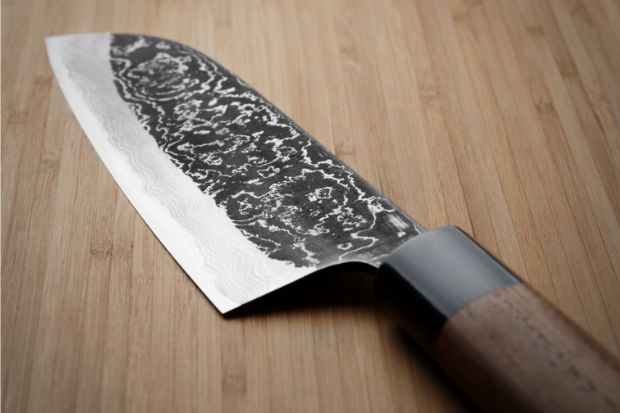If you’re a kitchen maven or home chef you need the tools to cook like a pro, and nothing will improve your home cooking experience like a great knife. What constitutes a great knife is somewhat personal, but most chefs would agree that a keen edge and a flexible feel is essential. Bonus points if it looks cool.
Damascus knives are gaining popularity for hitting all of these targets, but they come with a hefty price tag. So what exactly are Damascus knives, and are they worth the investment?
Damascus knives might be worth it, but only if they’re of high quality. Let’s take a closer look at what Damascus steel actually is, if what you’re buying really is Damascus steel, and whether the investment is the right choice for your kitchen.
Before we dive in, let’s take a step back and have a quick look at a few overall things to consider when shopping for a new kitchen knife.
How To Choose a Kitchen Knife
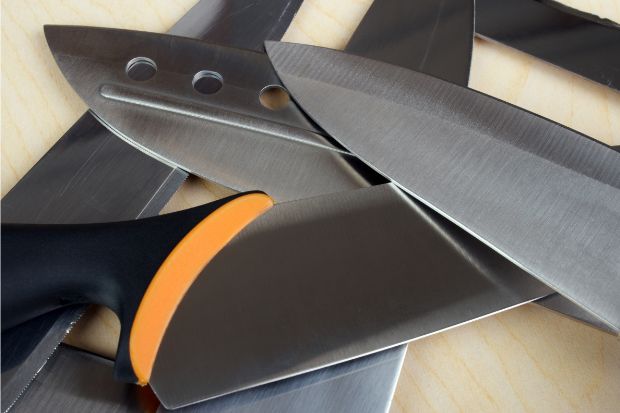
When you’re considering a new tool, it’s important to make sure you know what you’re looking for and what you need. If you aren’t quite sure what kind of knife is right for you, think about how you’ll be using it, caring for it, and how you want it to look and feel.
When it comes to kitchen knives, there are a few basics to consider, and the blade material is only one of them.
Here is a quick list of things to consider:
- For the best all around use, an eight-inch blade is most typical.
- Western styles tend to be easier to grip, sharpen, and use for many purposes.
- Eastern styles (mostly notably Japanese) tend to have a more specific grip style and are superior for slicing but can be trickier for other uses.
- Watch out for raw wood or slippery plastic handles.
- Blade hardness is measured by HRCs or Rockwell hardness. The typical range is 55-62, with 55-58 being typical of the softer Western styles, and Eastern styles ranging from 60 and above.
- Softer blades are more forgiving but will need to be sharpened more often.
- High-quality Damascus steel knives will have a combination of hardness and flexibility.
What Is a Damascus Knife?
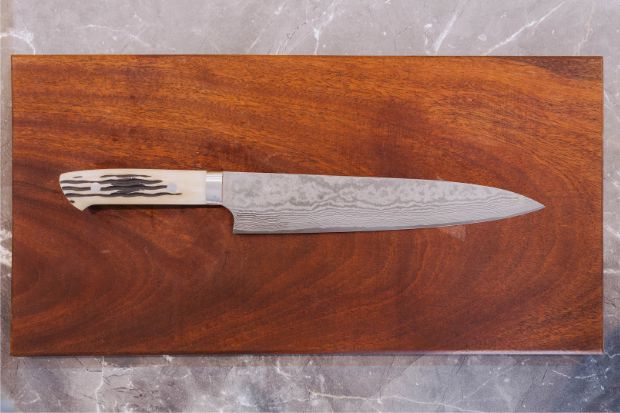
History of Damascus Steel
Damascus steel is a type of steel believed to have originated in the city of Damascus in what is now Syria, but the technology and raw material used in the process came out of India as far back as 400 BC.
Original Damascus special steel was made from a product called wootz, which is iron ore with high levels of carbon introduced to it through the crucible process of heating elements to extremely high temperatures in a ceramic pot. Wootz was then forged into weaponry that was both flexible and strong, maintained an impressively sharp edge, and had the elegant wavy pattern we now associate with Damascus steel.
The original method of casting Damascus steel was lost around the 1700s, and although modern metallurgists have tried reverse engineering and experimenting with high carbon steel, nothing has quite replicated the original.
Wootz is no longer being produced, but there are modern methods that very closely mimic the ancient process, and with current technology a very similar product is being produced in small quantities today.
Modern Damascus Steel
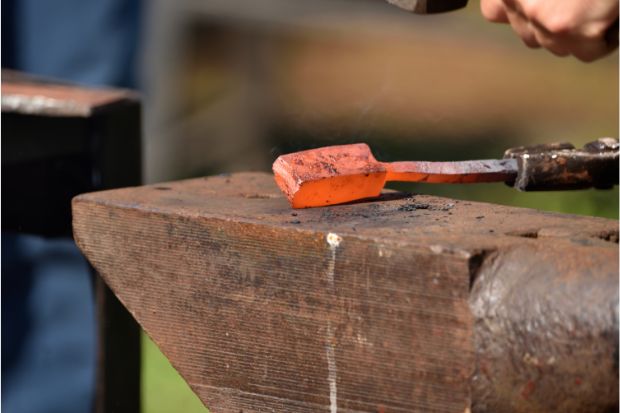
Although the ancient Damascus steel process has been lost to time, the crux of the method is the combining of high carbon steel, which contributes to strength and a sharp edge, with a lower carbon steel for flexibility or ‘ductility.’ These alloys are folded together during the forging process. The amount attention and care given to the process, as well as the number of layers, contribute to the quality of the finished product.
As steel weaponry is no longer sought after, the most common current application is in the production of high-end kitchen knives. When you’re shopping for a Damascus knife, the number of layers is often a marker of higher quality, but look for a trusted brand as well.
The combination of strength, sharpness, and flexibility makes Damascus steel an ideal material for knives, but are they really better than other high-quality knives on the market?
Is a Damascus Knife Worth It?
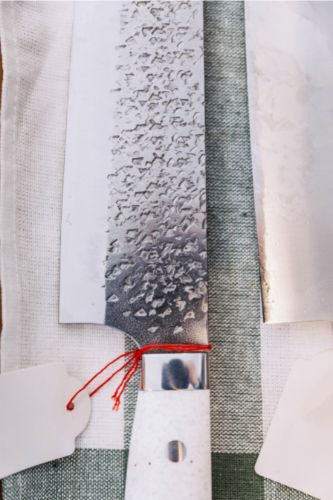
A high quality Damascus knife, if well made, will certainly be an impressive product. The issue is that poor-quality knives made by combining a higher carbon center with a lower carbon shell, or ones that simply have the wavy pattern etched onto the steel blade with an acid treatment, are still called Damascus knives. With such a wide range of high-end knives on the market, the added cost of a Damascus knife is really only worth it if it’s well made.
Even if it is well made, you’ll want to be someone who uses their knives in an advanced way and who is prepared to care for them properly. Damascus knives will easily rust and degrade if they’re not cared for. So no chopping a carrot, wiping it off and throwing it in the cutlery drawer with these bad boys.
If you’ve got the money and you want that next-level knife, go for a well-made Damascus knife, but overall I’d say there are equal or better options at a lower price point.
